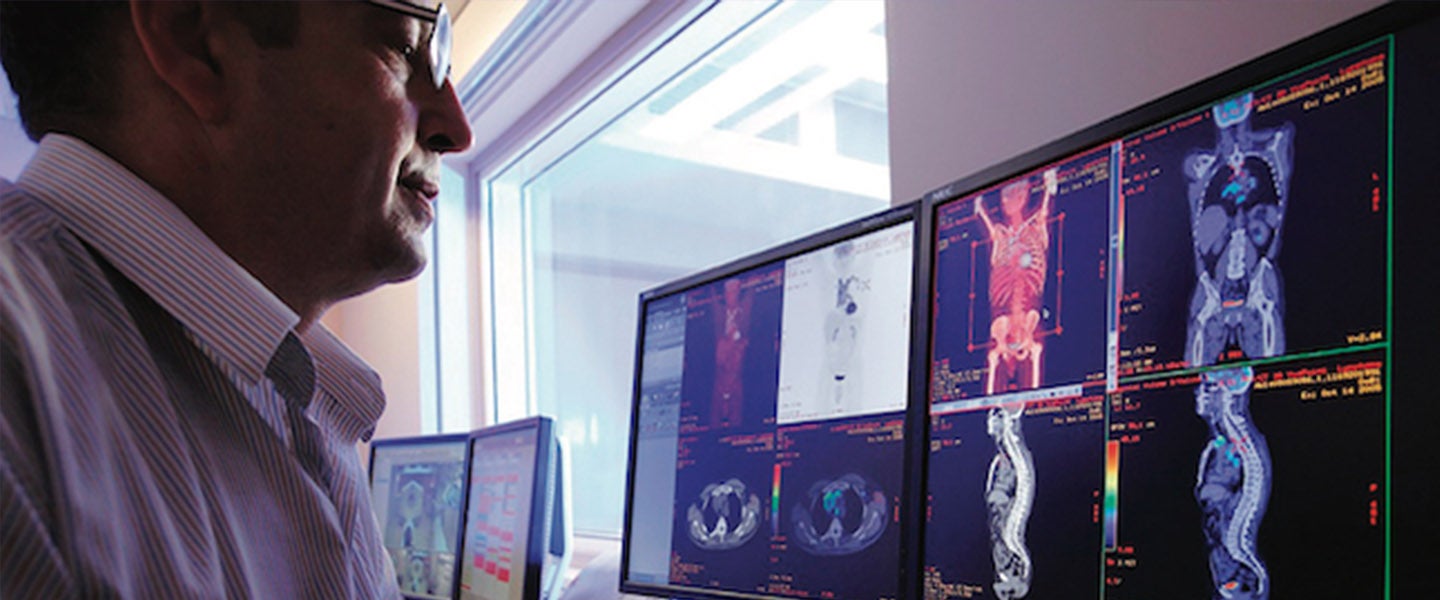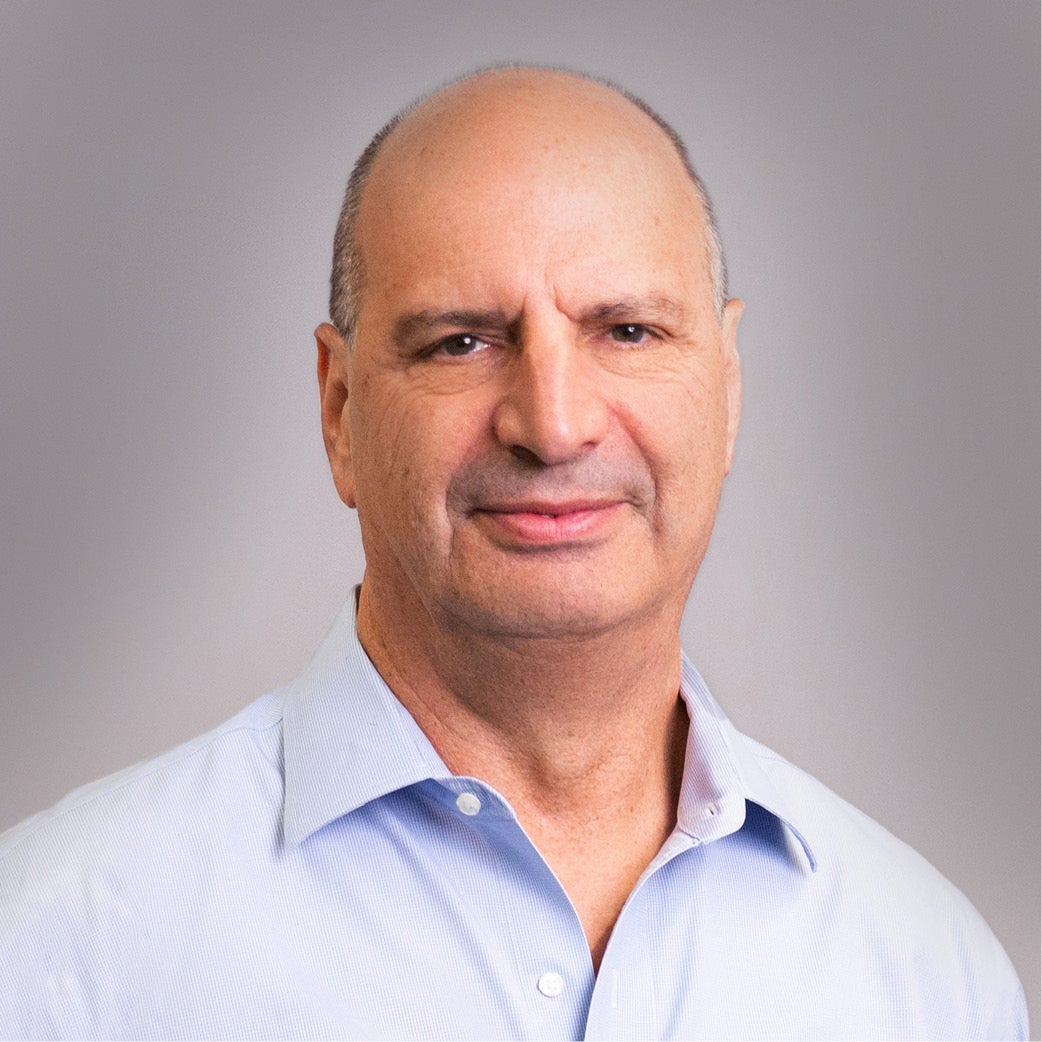
PSMA PET-CT
PSMA PET-CT

What is a PSMA PET-CT scan?
A PET CT scan is a combined study that shows very different information in the form of images. The PET (positron emission tomography) scan shows areas with increased metabolic activity (functional information), while the CT (computed tomography) scan shows detailed anatomy (structural information). The combination of these two scans enables a doctor to tell whether a region with high metabolic activity is significant, and if so, to state where it is in the body.
A PSMA PET-CT is used in patients with prostate cancer to help diagnose and stage the disease.
18F-PSMA is a prostate-specific membrane antigen (PSMA) and a recognised target for imaging prostate cancer. 18FPSMA is comprised of two components; a radioactive isotope of fluorine (18F) and base tracer of DCFPyL (PSMA or PSR). Adverse reactions are extremely rare and the radiation exposure is comparable to a conventional CT scan.
How much will my examination cost?
Fees for radiology tests can vary and depend on a number of factors. Please make an enquiry with us by phone or email to get a quote for the service you require. ACC co-payments may apply.
We accept all radiology referral forms.
Waikato
Phone: 0800 426 723
Email: Booking.Waikato@i-med.co.nz
Rotorua
Phone: 0800 466 5642
Email: Booking.Rotorua@i-med.co.nz
Bay of Plenty
Phone: 07 544 5993
Email: Booking.bop@i-med.co.nz
Taranaki
Phone: 06 759 4317
Email: Booking.Taranaki@i-med.co.nz
How do I prepare for a PSMA PET-CT? keyboard_arrow_down
Our team will inform you of the exact preparation that you will need for the scan. It is very important to follow the preparation instructions, failure to do so could result in the scan being postponed or cancelled.
In general, the following will apply:
- Fasting 4 hours before your appointment (fasting means NO food, but you may drink water only during this time).
- For patients with diabetes, have a light breakfast with your medication, and fasting for 4 hours before your appointment.
Please note: It is important to tell our team if you are pregnant or breastfeeding.
What happens during a PSMA PET-CT? keyboard_arrow_down
A nuclear medicine technologist (a healthcare professional trained to handle isotopes) will administer an individually tailored injection of 18F-PSMA into a vein (usually in your arm).
Following this injection, you will be asked to rest quietly in your own uptake room for 90 minutes - feel free to bring a book or tablet to occupy yourself as relatives and friends will be asked to wait in the waiting area.
The scan time takes 20-30 minutes, please let the technologist know if you are not comfortable before the scanning starts to ensure we make you comfortable.
How long does the entire test take? keyboard_arrow_down
From arrival to departure, you will be with us approximately 3.5 hours.
What happens after the PSMA PET-CT scan? keyboard_arrow_down
The technologist will tell you if there are any special instructions you need to follow after the scan. In most cases you will be able to leave straight away, then eat and drink as normal.
The isotope loses its radioactivity over time and will pass naturally out of your body. To assist passing the isotope out of your body, we encourage you to drink plenty of liquid and empty your bladder regularly.
The amount of radiation in your body after the scan will be very small, if you have any concerns about exposure to radiation, please discuss this with one of our team.
How do I get my results? keyboard_arrow_down
The PET CT images will be electronically sent following the scan. A written report will be sent to the doctor who has requested your scan (within 7 days), please inform us if you would like a copy of the report to be sent to your GP. Your doctor will be able to discuss the results with you at your next appointment.
Related procedures

This information has been reviewed & approved by Dr Ronald Shnier (I-MED Chief Medical Officer).
Related procedures

This information has been reviewed & approved by Dr Ronald Shnier (I-MED Chief Medical Officer).
How much will my examination cost?
Fees for radiology tests can vary and depend on a number of factors. Please make an enquiry with us by phone or email to get a quote for the service you require. ACC co-payments may apply.
We accept all radiology referral forms.
Waikato
Phone: 0800 426 723
Email: Booking.Waikato@i-med.co.nz
Rotorua
Phone: 0800 466 5642
Email: Booking.Rotorua@i-med.co.nz
Bay of Plenty
Phone: 07 544 5993
Email: Booking.bop@i-med.co.nz
Taranaki
Phone: 06 759 4317
Email: Booking.Taranaki@i-med.co.nz
